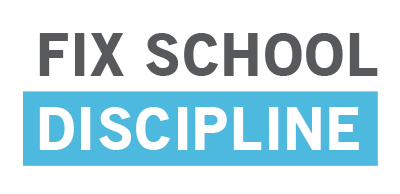U.S. Education and Justice Leaders Say that School Discipline Discrimination Puts Students’ Civil Rights at Risk
 U.S. education and justice leaders have joined forces to say that school discipline discrimination puts students civil rights and learning at risk. Suspension and expulsion should be the last school discipline choice for America’s students, according to guidance for school leaders announced today by U.S. Secretary of Education Arne Duncan and U.S. Attorney General Eric Holder. The civil rights guidance come in response to national data showing widespread discrimination in school discipline.
U.S. education and justice leaders have joined forces to say that school discipline discrimination puts students civil rights and learning at risk. Suspension and expulsion should be the last school discipline choice for America’s students, according to guidance for school leaders announced today by U.S. Secretary of Education Arne Duncan and U.S. Attorney General Eric Holder. The civil rights guidance come in response to national data showing widespread discrimination in school discipline.
“A routine school disciplinary infraction should land a student in the principal’s office, not in a police precinct,” Holder said.
“We need to keep students in class where they can learn,” Duncan said. “These resources are a step in the right direction.”
Click here to read the guidance letter and download resources for parents and school communities.
The groundbreaking action by the nation’s education and justice leaders will help shift the focus of school discipline to prevention and support, instead of harsh school discipline practices that have caused a nationwide suspension epidemic.
The latest nationwide data from 2011-12 shows that black students are three times more likely to be suspended or expelled than white students. Black students represent 16% of all students, but they are 35% of all students suspended and 36% of all students expelled. Students with disabilities represent 14% of students, but are 76% of students who are physically restrained in schools. More than 50% of students involved in school-related arrests are black or Latino.
Public Counsel’s Education Rights Director Laura Faer said the guidelines send a message to California school and legislative leaders that it is time for a change:
“The Department of Education is holding up a giant magnifying glass to discrimination in school discipline, and it is reaching out a helping hand to parents, teachers, and students across the country. Harsh discipline rules put students on the fast track to failing grades, dropping out of school and coming into contact with juvenile and criminal justice systems. Far too many students of color are suspended and expelled. These guidelines send a strong message that ending discrimination in school discipline isn’t just a local issue; it’s an issue for our entire state and our nation. School districts have a responsibility to help each and every student succeed, and positive school discipline practices must be part of that. Some California schools have heard the wake-up call.”
“It’s time for California leaders to take the next step and challenge all our schools end discrimination in discipline for all students, not just some of them.”
Assistant Secretary of Education for Civil Rights Catherine Lhamon said the guidance will help “make sure children are respected in school and their learning opportunities are protected.” She added that “schools need to engage the whole school community, including parents” to change school discipline practices.
The Department of Education’s Office of Civil Rights investigates allegations of discrimination in the nation’s public schools. The office has received more than 1,600 complaints about discrimination in school discipline across the country, and has entered agreements with schools in California, Mississippi, Florida and other states to reduce suspensions and expulsions of students of color. Department of Education leaders said schools that fail to confront discrimination in school discipline can face legal action.
Here are some highlights from the school discipline guidelines released today:
- School communities need to be involved in changing school district policies and state laws.
- School officials, not school resource officers and school police officers, on campus should be the first responders on school discipline.
- School districts need to have clear rules about the duties of police and school resource officers.
- School districts and states need to make data about school discipline available to parents and community members.
- Schools should promote research-based alternatives to harsh discipline.
The Department of Education also released a review of state laws and resources for school districts, parents, and community members working to change school discipline policies and state and local laws.
Lhamon said that eliminating suspensions for willful defiance and other subjectively defined offenses could be a strong step to reducing discrimination.

